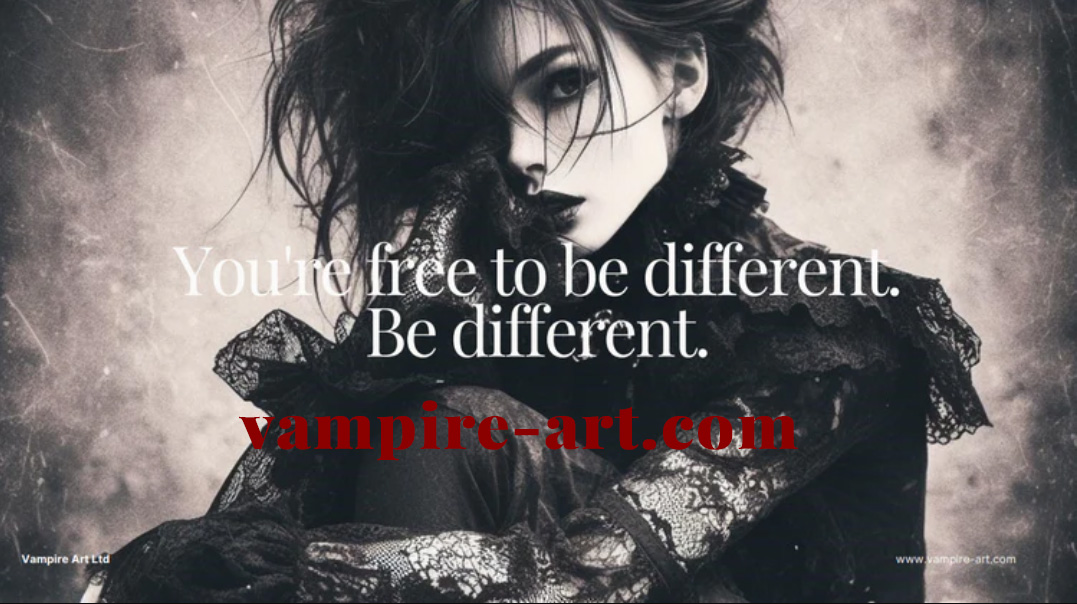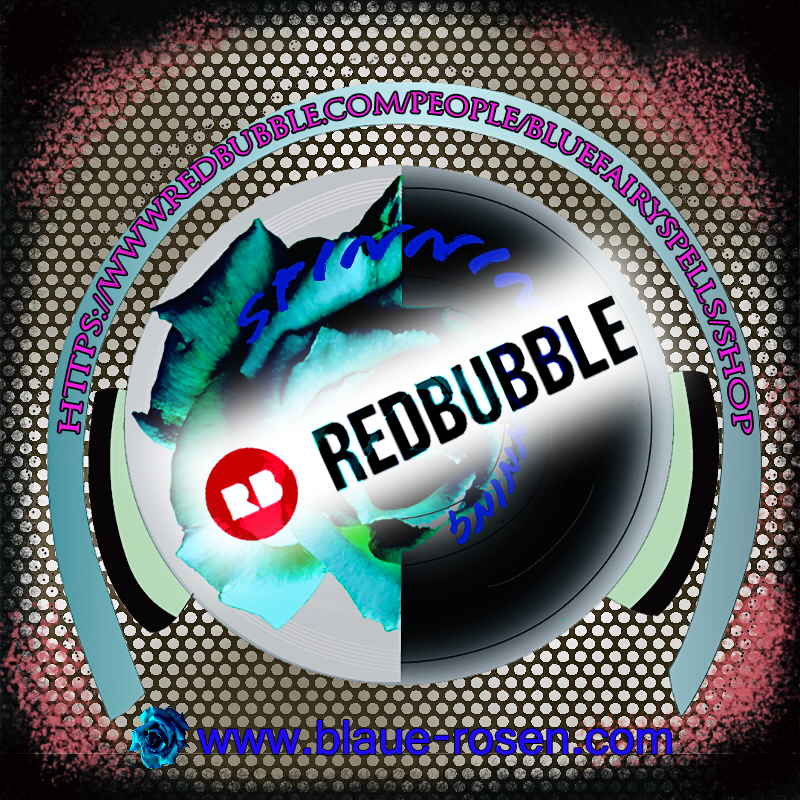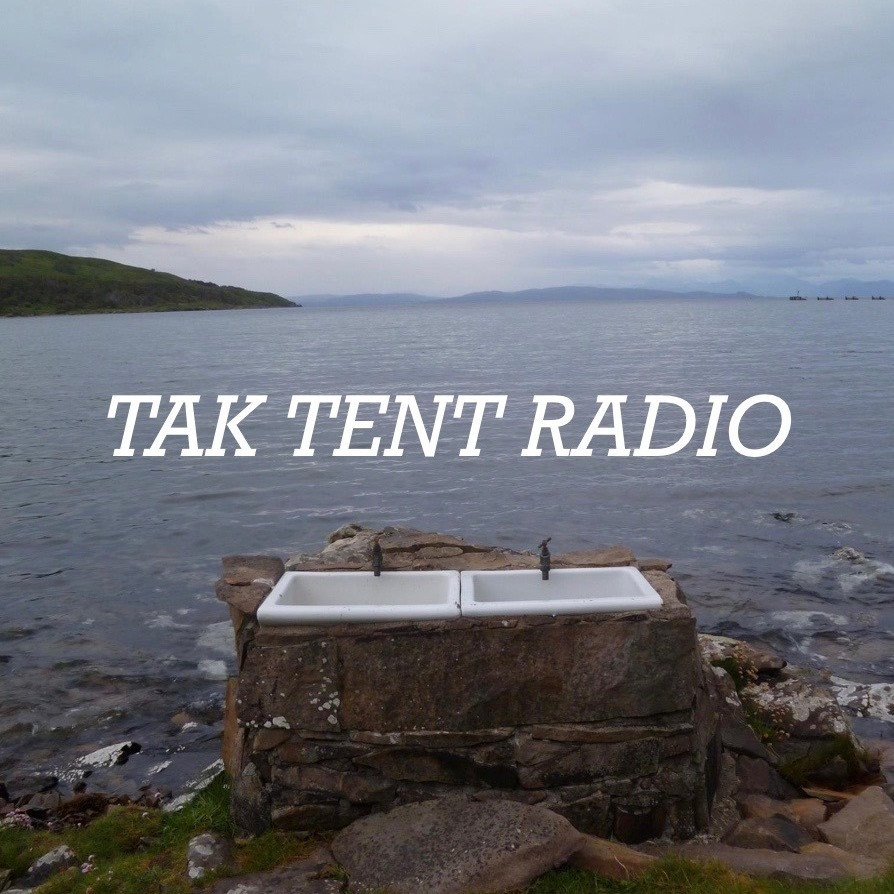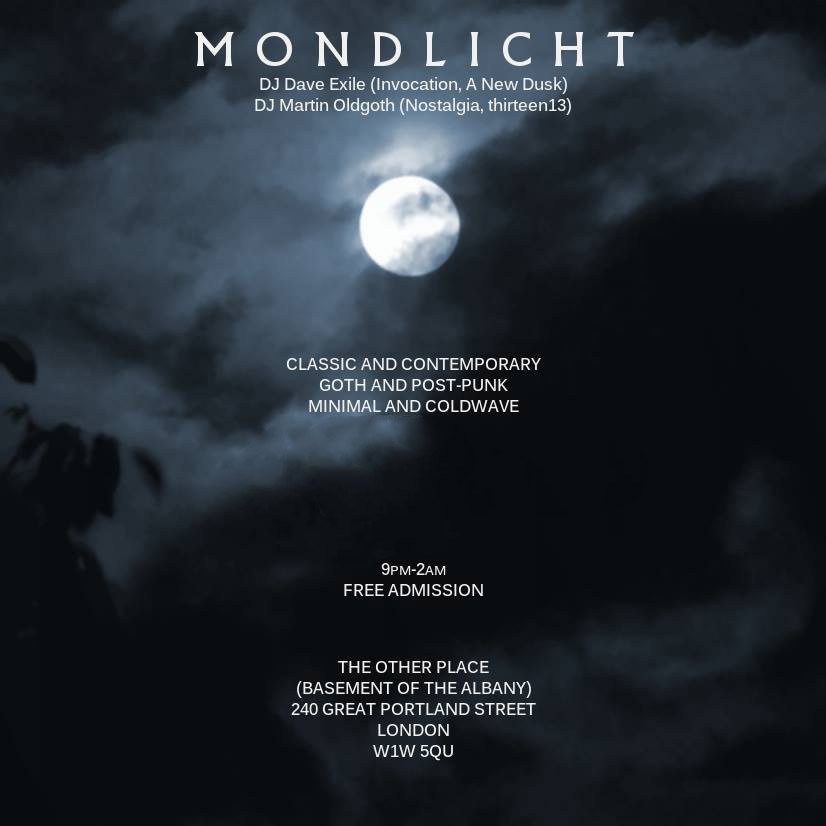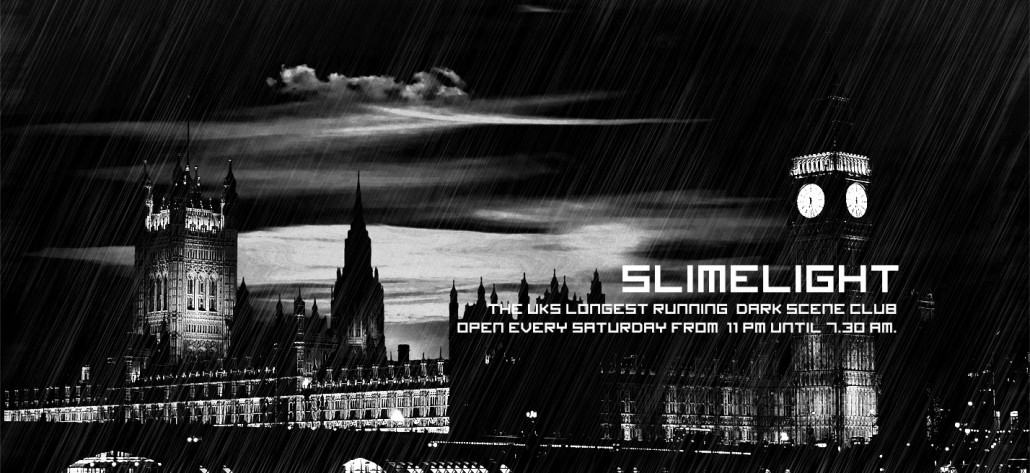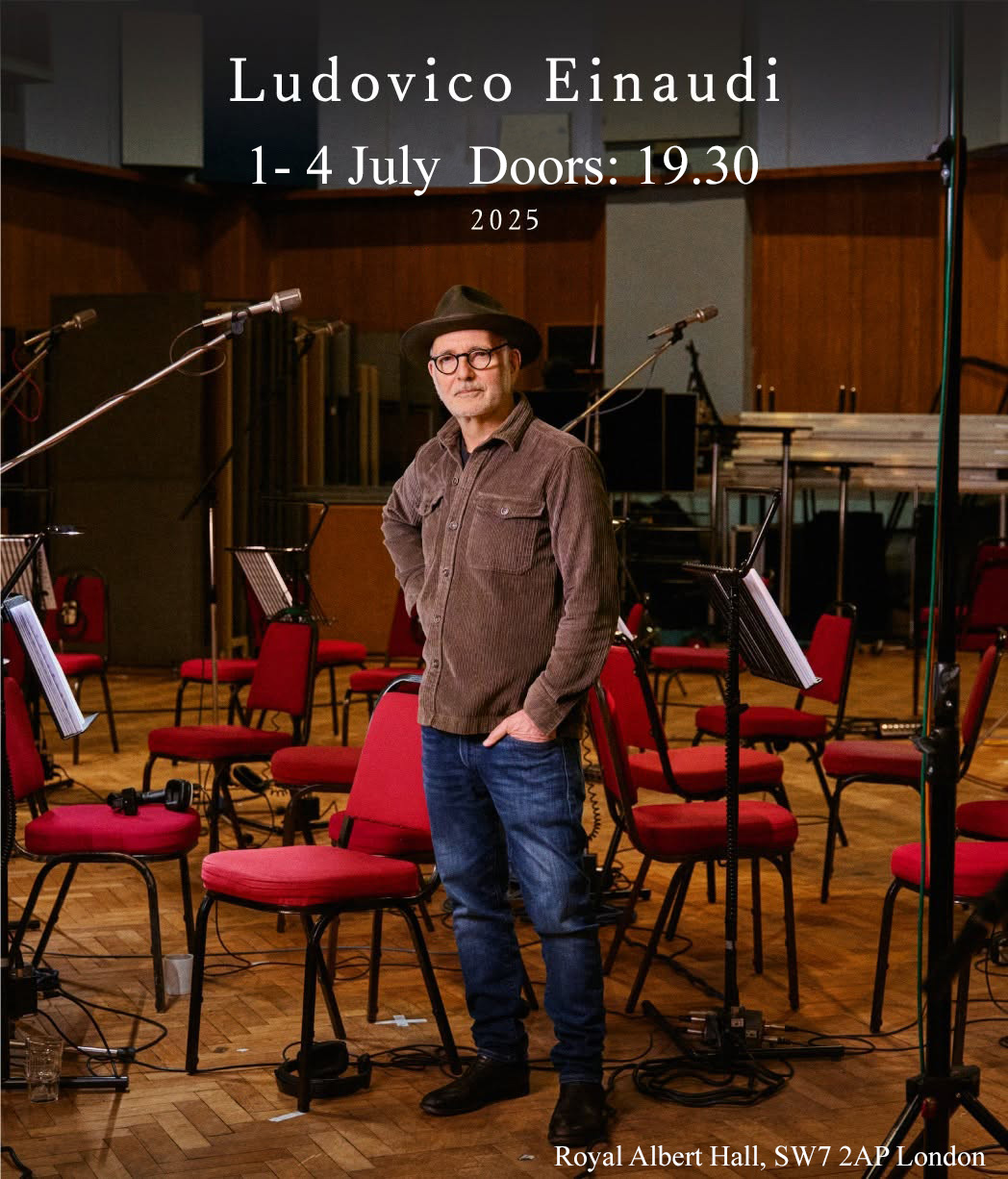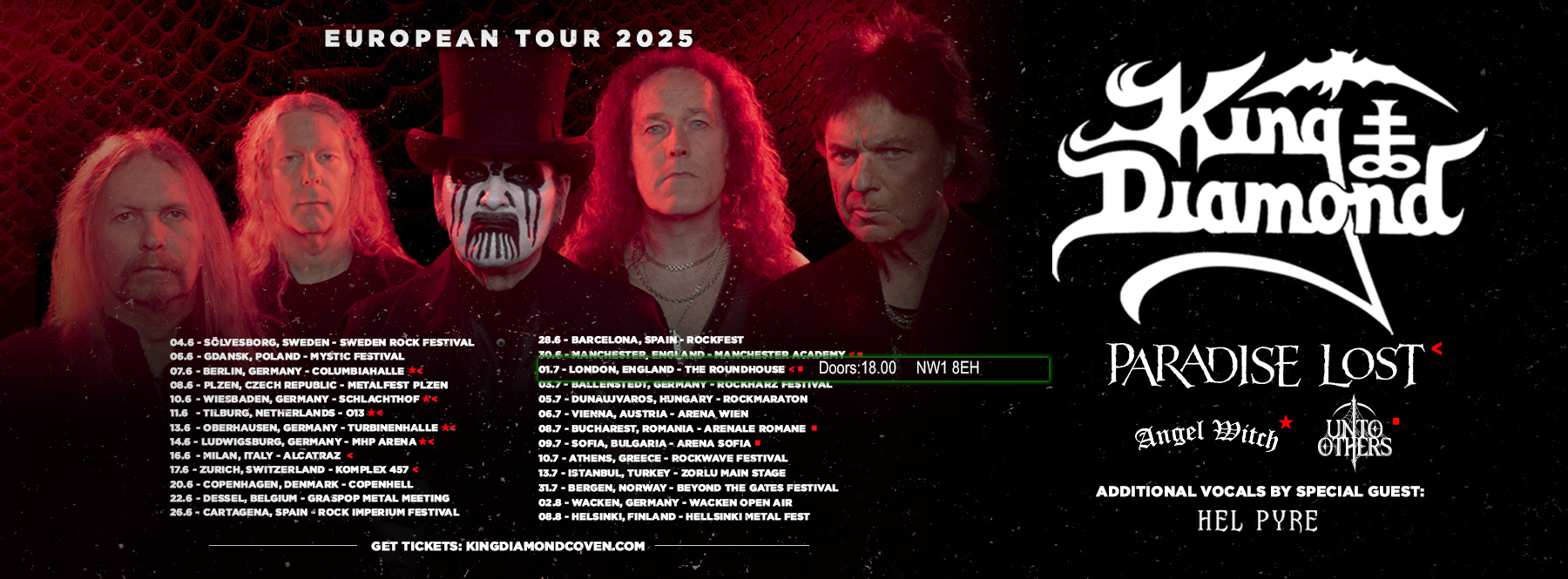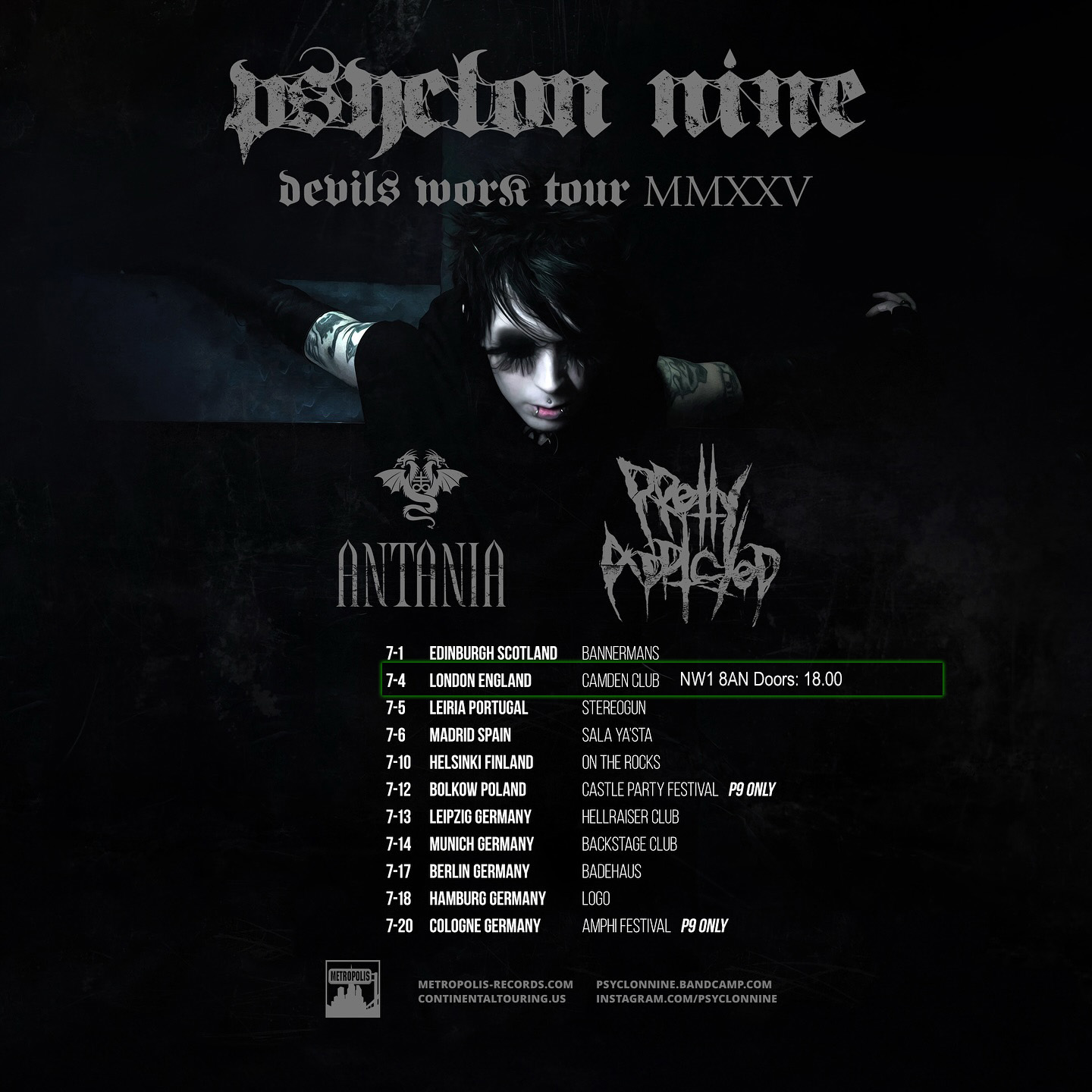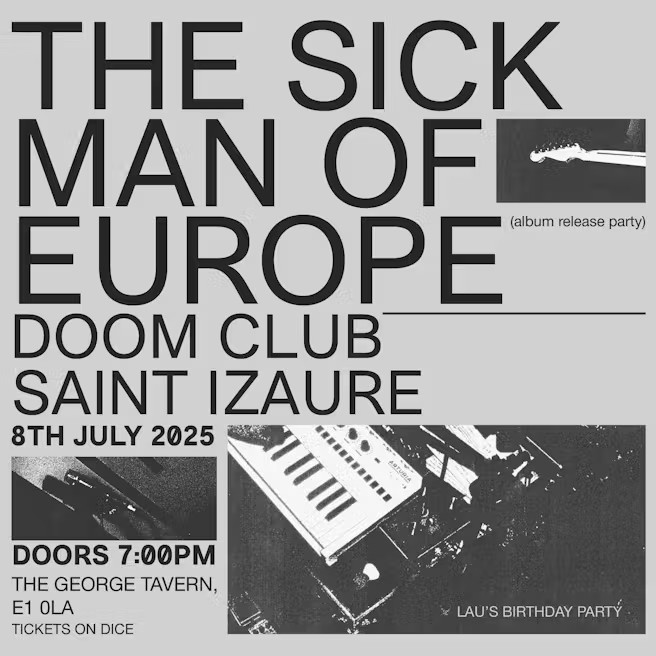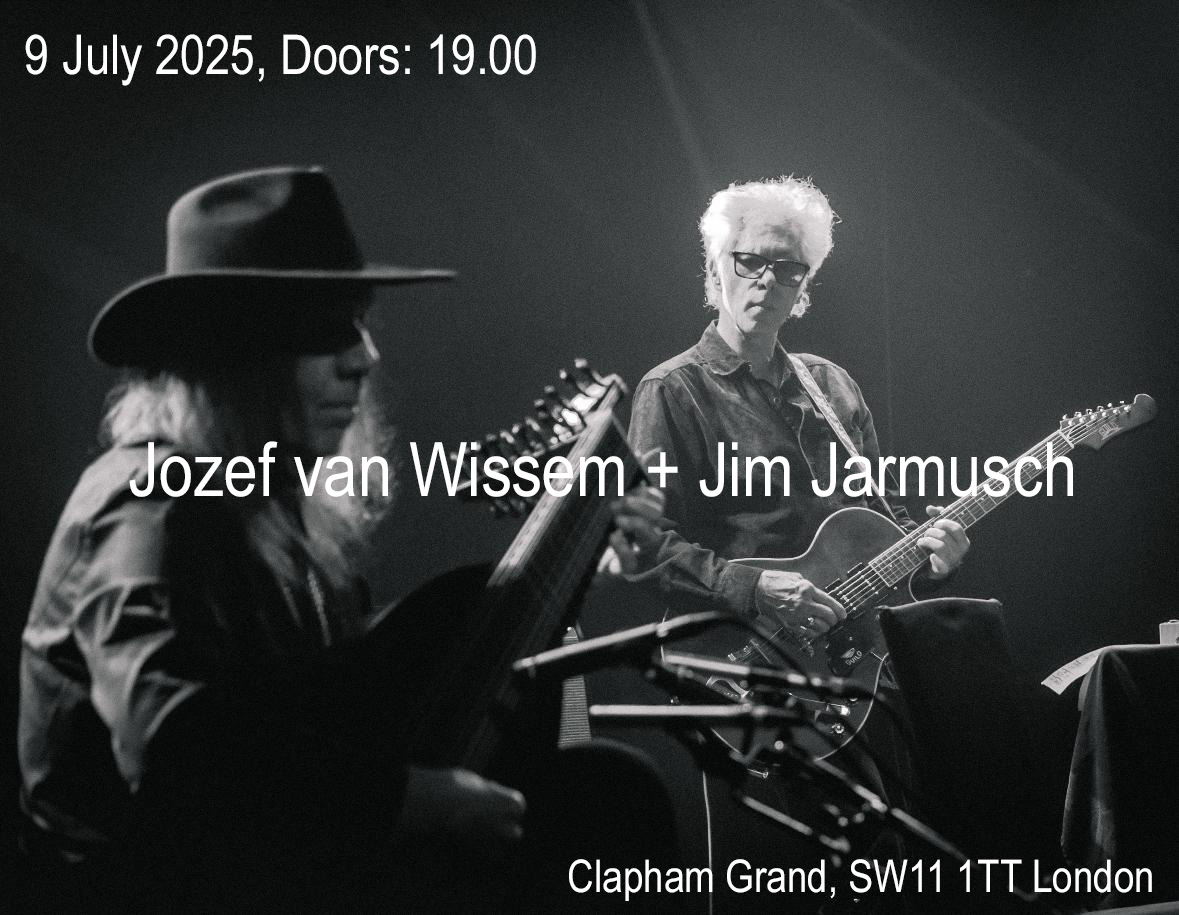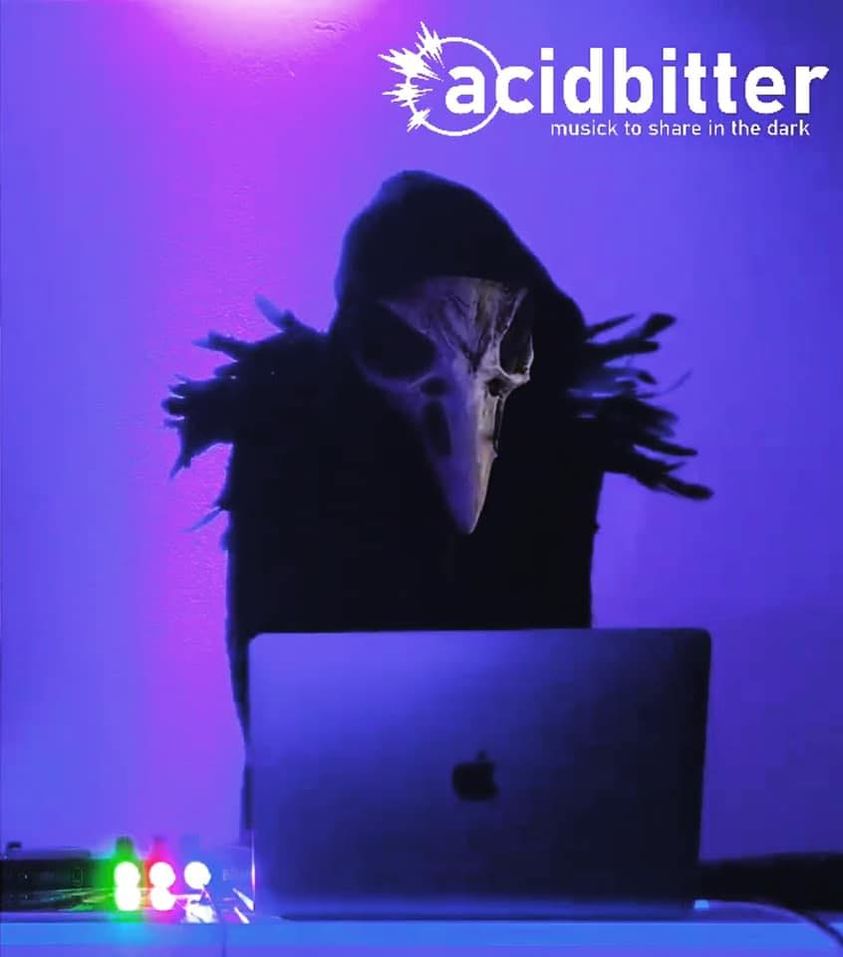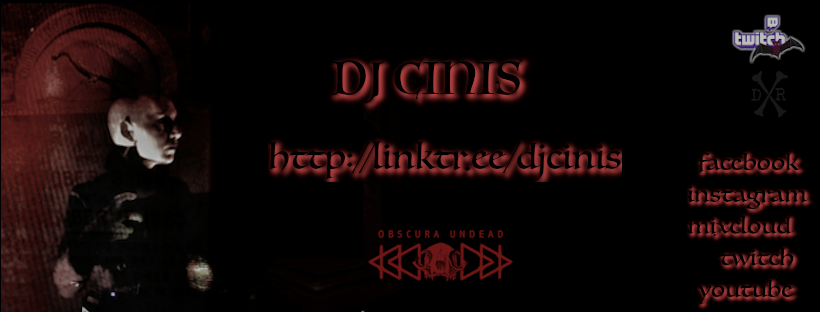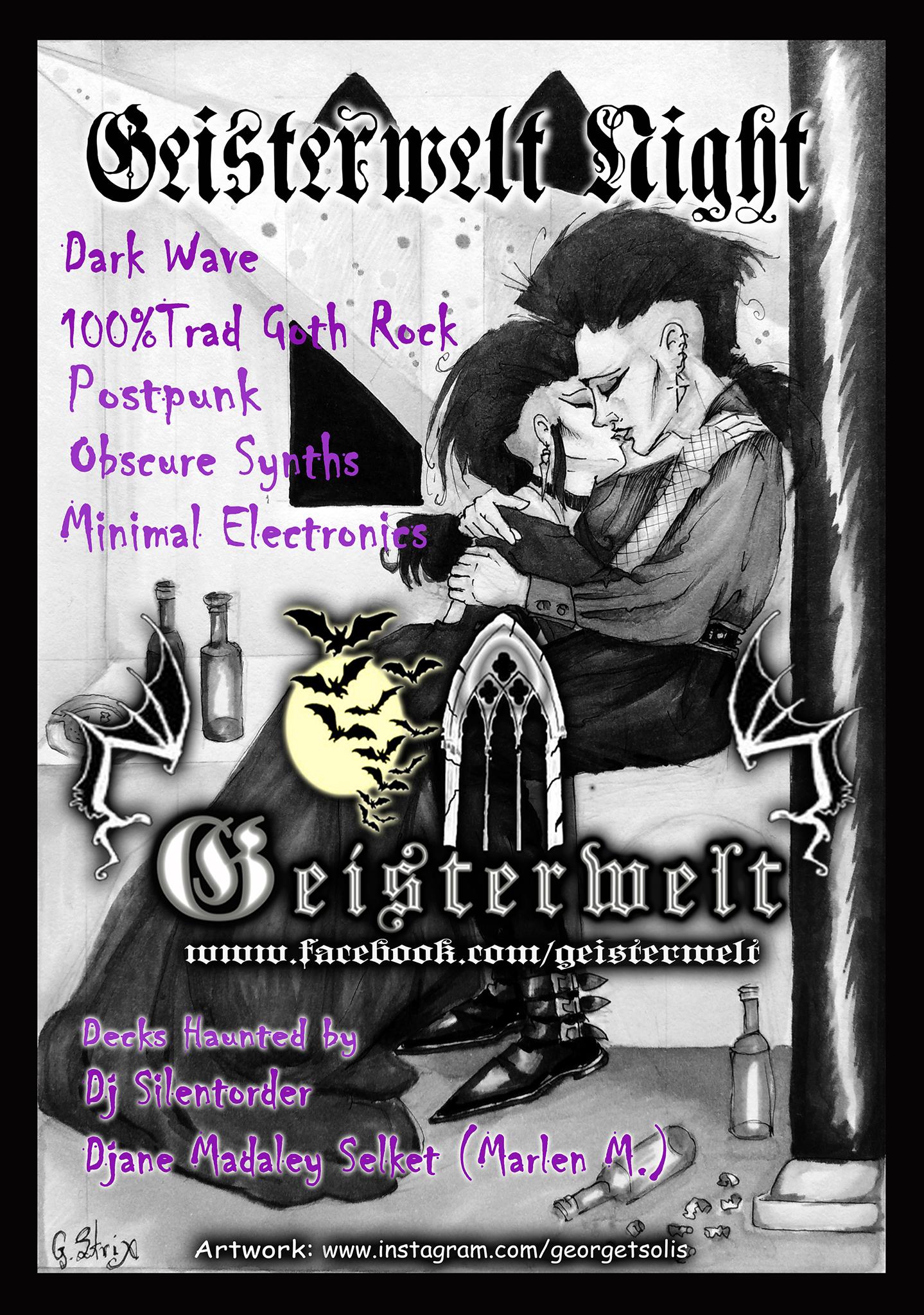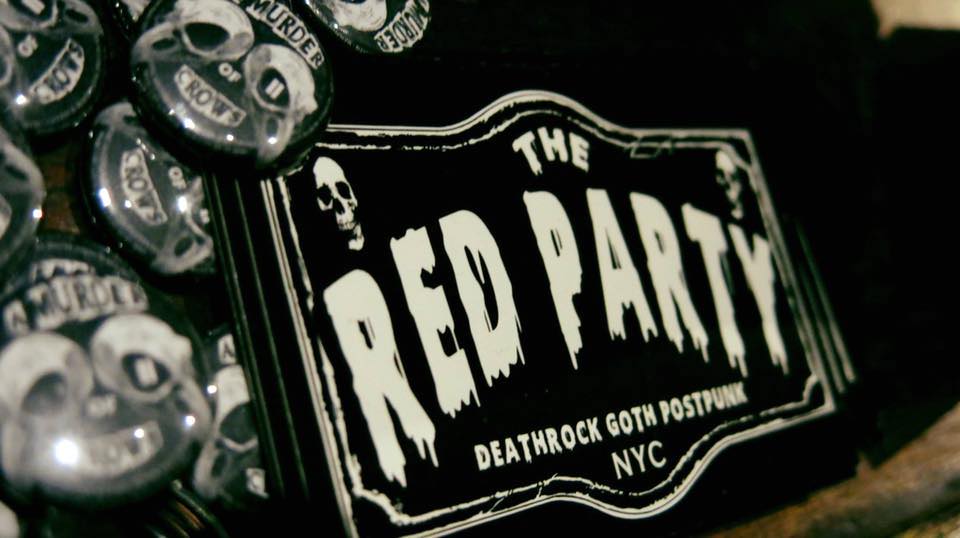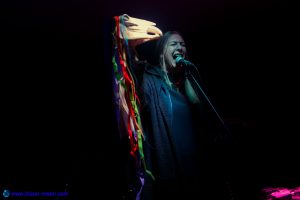 Time is a weird dimension in the universe; its effect is always remarkable but never under anyone’s control. The effect of sound through time and the way it influences its perception is mind-numbing.
Time is a weird dimension in the universe; its effect is always remarkable but never under anyone’s control. The effect of sound through time and the way it influences its perception is mind-numbing.
The performance of Dead Space Chamber Music made us think about all this, and we will try to unpick the ways they achieved that.
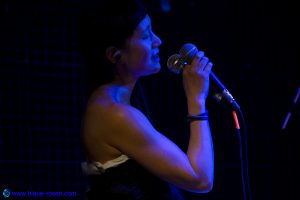 First, let’s talk about the meditational opening act by Seaming To, a composer and classically trained pianist with a degree from RNCM. Whether referred to as ‘Seaming’, ‘To’, or ‘Seaming To’, this is a performer who can create calmness in an energy field. She moved in complete silence, and her performance had perfectly orchestrated moments of controlled tension and elegance. Apart from playing the piano, she also played the flute and, at one point,
First, let’s talk about the meditational opening act by Seaming To, a composer and classically trained pianist with a degree from RNCM. Whether referred to as ‘Seaming’, ‘To’, or ‘Seaming To’, this is a performer who can create calmness in an energy field. She moved in complete silence, and her performance had perfectly orchestrated moments of controlled tension and elegance. Apart from playing the piano, she also played the flute and, at one point, 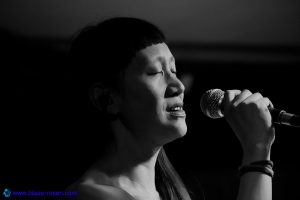 sang into two microphones. She introduced each song in a whispering voice as if the whole world is a fragile thing and nothing should cause more disturbance and reverberation than is required.
sang into two microphones. She introduced each song in a whispering voice as if the whole world is a fragile thing and nothing should cause more disturbance and reverberation than is required.
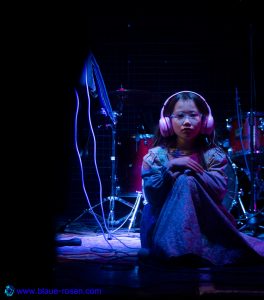 Her music fuses trip hop, modern classical, and free jazz elements within each song, but it quickly became evident that Seaming To’s appearance was meant to be perceived as one piece with different chapters. It was meant to come in, open up a space in the continuum of time, traverse it, and then finish by living a crack so we could find our way back to this energy. We listened to songs from her latest album ‘Dust Gatherers’ as well as a new song alongside the older ‘Blessing’, ‘Natural Process’, ‘Test Patterns’ before we welcomed first Max on stage behind the drums, and then Xane for backing
Her music fuses trip hop, modern classical, and free jazz elements within each song, but it quickly became evident that Seaming To’s appearance was meant to be perceived as one piece with different chapters. It was meant to come in, open up a space in the continuum of time, traverse it, and then finish by living a crack so we could find our way back to this energy. We listened to songs from her latest album ‘Dust Gatherers’ as well as a new song alongside the older ‘Blessing’, ‘Natural Process’, ‘Test Patterns’ before we welcomed first Max on stage behind the drums, and then Xane for backing 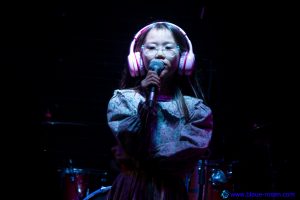 vocals – Seaming To’s children. The usual dynamics of parent/child were challenged as both Max and Xane were in complete control of their stage appearances despite their very young ages. Xane, who was seated unassumingly amongst us on the floor throughout Seaming’s performance, was captivating when she appeared on stage with a steady gaze and feeling comfortable to change her position to support the energy of the songs.
vocals – Seaming To’s children. The usual dynamics of parent/child were challenged as both Max and Xane were in complete control of their stage appearances despite their very young ages. Xane, who was seated unassumingly amongst us on the floor throughout Seaming’s performance, was captivating when she appeared on stage with a steady gaze and feeling comfortable to change her position to support the energy of the songs.
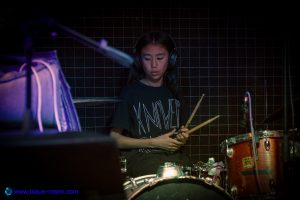 The synergy of the voices was amazing, and Max’s skilful drumming made the integration of the young musicians seamless. It could have been cringe – but was executed to perfection.
The synergy of the voices was amazing, and Max’s skilful drumming made the integration of the young musicians seamless. It could have been cringe – but was executed to perfection.
futures we lost – Have we lost our future?
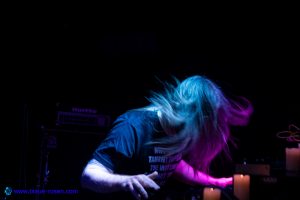 The atmosphere changed significantly once ‘futures we lost’ – aka Doug Gordon – started setting up. He placed candles at the front of the stage and opted for different stage lights, attempting to create the impression that we were in a gothic castle or a cathedral. This created a heavier atmosphere for us to receive his set. Doug was wearing a t-shirt whose print referenced the witch trials, calling for a fear of the accusers instead of the accused. During his set, he created dark electronic/techno soundscapes with subtle industrial and idm alterations.
The atmosphere changed significantly once ‘futures we lost’ – aka Doug Gordon – started setting up. He placed candles at the front of the stage and opted for different stage lights, attempting to create the impression that we were in a gothic castle or a cathedral. This created a heavier atmosphere for us to receive his set. Doug was wearing a t-shirt whose print referenced the witch trials, calling for a fear of the accusers instead of the accused. During his set, he created dark electronic/techno soundscapes with subtle industrial and idm alterations. 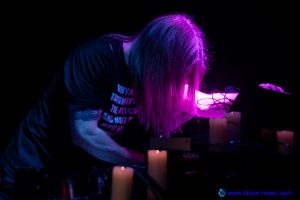 Mastering an array of knobs and cables, futures we lost made us dance. The project’s debut self-titled album was released last year and “explores the post-industrial graveyards and future visions based on our present world of neo technological horrors”. The twelve tracks are inspired by the effect on our collective cultural psyche of
Mastering an array of knobs and cables, futures we lost made us dance. The project’s debut self-titled album was released last year and “explores the post-industrial graveyards and future visions based on our present world of neo technological horrors”. The twelve tracks are inspired by the effect on our collective cultural psyche of 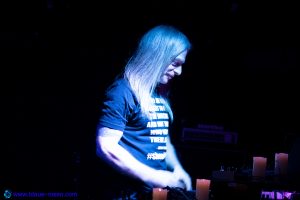 mechanised slavery, of toxic, governmentally-induced paranoia, and the distortion and living death of our dreams. Even though there were no projections during this set, the stage presence and the set up hinted at a more profound concept behind these dynamic rhythms.
mechanised slavery, of toxic, governmentally-induced paranoia, and the distortion and living death of our dreams. Even though there were no projections during this set, the stage presence and the set up hinted at a more profound concept behind these dynamic rhythms.
Dead Space Chamber Music or how ancestral voices travel through time
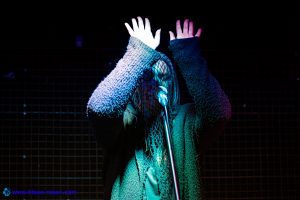 I have a soft spot for the interpretation of remnants of ancient music and sound, and Dead Space Chamber Music’s contribution was spot on. Let me begin by saying that for one to truly appreciate the work of Dead Space Chamber Music in its entirety, one needs to delve into the history behind the texts and forget about any previous performance of the lyrics. The band has reinterpreted and set to its own music medieval texts and traditional chants associated with old customs. I have had heated discussions recently about the heightened role of traditional rhythms and music today – a trend that seems to be growing in some music circles.
I have a soft spot for the interpretation of remnants of ancient music and sound, and Dead Space Chamber Music’s contribution was spot on. Let me begin by saying that for one to truly appreciate the work of Dead Space Chamber Music in its entirety, one needs to delve into the history behind the texts and forget about any previous performance of the lyrics. The band has reinterpreted and set to its own music medieval texts and traditional chants associated with old customs. I have had heated discussions recently about the heightened role of traditional rhythms and music today – a trend that seems to be growing in some music circles. 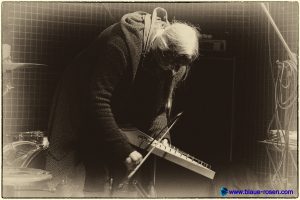 The work of Dead Space Chamber Music, among very few other musicians, seems to be proving the following point. I believe that references to traditional music/texts and rhythms (the few surviving snippets of them) can only travel through time and be relevant today if they acquire different characteristics from those they had in the original time and setting. Any attempt to replicate, in modern times, music that was charged with the energy of specific settings and traditions of the past is doomed to appear as anachronistic and irrelevant. This is not what happens here, and that is how Dead Space Chamber Music is opening up all sorts of unexplored spaces in one’s psyche.
The work of Dead Space Chamber Music, among very few other musicians, seems to be proving the following point. I believe that references to traditional music/texts and rhythms (the few surviving snippets of them) can only travel through time and be relevant today if they acquire different characteristics from those they had in the original time and setting. Any attempt to replicate, in modern times, music that was charged with the energy of specific settings and traditions of the past is doomed to appear as anachronistic and irrelevant. This is not what happens here, and that is how Dead Space Chamber Music is opening up all sorts of unexplored spaces in one’s psyche.
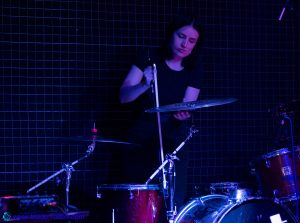 The songs that make up the band’s latest release, ‘The Black Hours‘ –a few of which we listened to live during this gig – have ancient sonic souls spanning over 100 years. The album borrows the title of a medieval manuscript (a book of prayers created between 1460 and 1475 to mark the hours from morning to evening) and was created in a way that reflected that band’s very conscious decision to mark the passage of time.
The songs that make up the band’s latest release, ‘The Black Hours‘ –a few of which we listened to live during this gig – have ancient sonic souls spanning over 100 years. The album borrows the title of a medieval manuscript (a book of prayers created between 1460 and 1475 to mark the hours from morning to evening) and was created in a way that reflected that band’s very conscious decision to mark the passage of time. 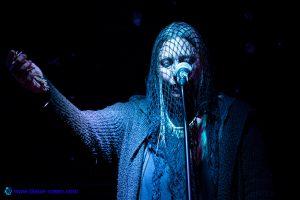 The new interpretation of these song lyrics (some of which are in Welsh, others in Latin and Old English) and the decision to envelop them in heavy sound and enlightening percussion make them resemble sonic omens. To experience the newly unlocked energies within these songs live was again a very powerful experience that left a mark.
The new interpretation of these song lyrics (some of which are in Welsh, others in Latin and Old English) and the decision to envelop them in heavy sound and enlightening percussion make them resemble sonic omens. To experience the newly unlocked energies within these songs live was again a very powerful experience that left a mark.
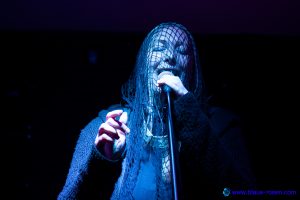 Dead Space Chamber Music performed reimagined versions of ‘Bryd One Brere‘ (c. 1290-1320) ; the earliest surviving English secular love song with a complete lyric, ‘Mari Lwyd/Morfa’r Frenhines‘ (Grey Mare/Queens March) – a fantastic fusion of a traditional Welsh song with an Irish waltz, an invigorating, bone-cracking, enriched interpretation of ‘Flow My Teares‘
Dead Space Chamber Music performed reimagined versions of ‘Bryd One Brere‘ (c. 1290-1320) ; the earliest surviving English secular love song with a complete lyric, ‘Mari Lwyd/Morfa’r Frenhines‘ (Grey Mare/Queens March) – a fantastic fusion of a traditional Welsh song with an Irish waltz, an invigorating, bone-cracking, enriched interpretation of ‘Flow My Teares‘ 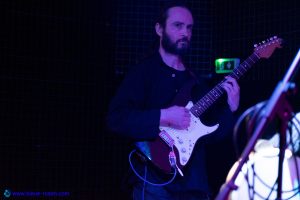 (originally written by English composer John Downland c. 1563-1626), and ‘The Pit / Dissolved in Ashes‘. All songs apart from ‘Flow My Teares‘, which can be found on the band’s debut album, are part of ‘The Black Hours’ album.
(originally written by English composer John Downland c. 1563-1626), and ‘The Pit / Dissolved in Ashes‘. All songs apart from ‘Flow My Teares‘, which can be found on the band’s debut album, are part of ‘The Black Hours’ album.
“Death and nature, they will marvel Oh when the creature will rise again…” (lyrics ‘The Pit/Dissolved in Ashes‘)
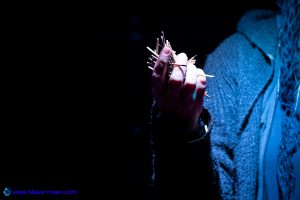 We salute the band’s meaningful, thorough, creative, and theatrical interpretation of these songs and the added emotional weight the songs acquired this time through a performance charged by the passage of time. Ellen has clearly undergone a further creative transformation since the last time we enjoyed the band live and, as a result, the vocals were more emotional this time, with added timbre, more bass notes, and more colour.
We salute the band’s meaningful, thorough, creative, and theatrical interpretation of these songs and the added emotional weight the songs acquired this time through a performance charged by the passage of time. Ellen has clearly undergone a further creative transformation since the last time we enjoyed the band live and, as a result, the vocals were more emotional this time, with added timbre, more bass notes, and more colour. 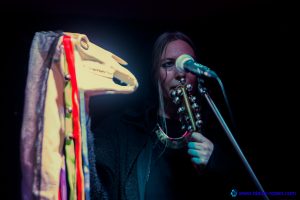 The interplay of the Welsh traditional song with the Irish waltz (‘Mari Lwyd/Morfa’r Frenhines‘) is a moment of creative brilliance and the added theatricality and musicality that has been unlocked in all the songs – the percussive elements including the dropping of nails that resemble tears, a ceremonial dance with a replica horse skull, the face mask reminiscent of a warrior’s chainmail armour – not only connected these songs with their past, acknowledging and respecting their sources, but brought them to the present, full with overwhelming emotional drama that reflects the modern human experience.
The interplay of the Welsh traditional song with the Irish waltz (‘Mari Lwyd/Morfa’r Frenhines‘) is a moment of creative brilliance and the added theatricality and musicality that has been unlocked in all the songs – the percussive elements including the dropping of nails that resemble tears, a ceremonial dance with a replica horse skull, the face mask reminiscent of a warrior’s chainmail armour – not only connected these songs with their past, acknowledging and respecting their sources, but brought them to the present, full with overwhelming emotional drama that reflects the modern human experience.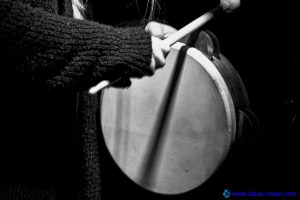 In the hands of Dead Space Chamber Music, the original music of these pieces is completely transformed from its classical past with heavy psych and doom metal elements, the instrumental parts creating a feeling of liberation from the texts and the sounds these songs had in the past. Ellen’s memorable endings of each song but especially ‘The Pit /Dissolved in Ashes‘ were testament to the fact that nothing was redundant in the sound, nothing was there to just fill the space and time, every breath and every shriek was there for a reason and that reason became apparent at the very end of each song – an incredible quality never experienced before.
In the hands of Dead Space Chamber Music, the original music of these pieces is completely transformed from its classical past with heavy psych and doom metal elements, the instrumental parts creating a feeling of liberation from the texts and the sounds these songs had in the past. Ellen’s memorable endings of each song but especially ‘The Pit /Dissolved in Ashes‘ were testament to the fact that nothing was redundant in the sound, nothing was there to just fill the space and time, every breath and every shriek was there for a reason and that reason became apparent at the very end of each song – an incredible quality never experienced before.
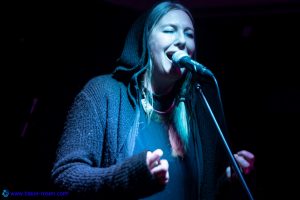 This time, the band was a trio – on stage with Ellen (Southern) on vocals/psaltery/percussion, were Tom (Bush) playing the guitar and Kate (Flint) behind the drums – a concise ensemble destined to channel a specific combination of rhythms and ideas.
This time, the band was a trio – on stage with Ellen (Southern) on vocals/psaltery/percussion, were Tom (Bush) playing the guitar and Kate (Flint) behind the drums – a concise ensemble destined to channel a specific combination of rhythms and ideas.
After the performance, Ellen mingled with the audience but, to my eyes, this was no longer just a musician who stepped off the stage, but a creature whose movement transcended the ordinary at this point and therefore should have been undisturbed at that moment, not interacting with our world of ordinary ideas and feelings.
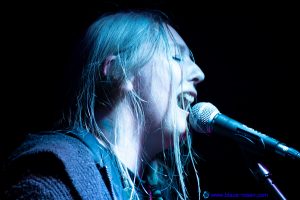 Congratulations for another memorable performance, and thank you for opening up our minds to all sorts of ideas and concepts. – We still hope to enjoy your music in a special venue some time soon.
Congratulations for another memorable performance, and thank you for opening up our minds to all sorts of ideas and concepts. – We still hope to enjoy your music in a special venue some time soon.
You can see more photos from this gig here.
